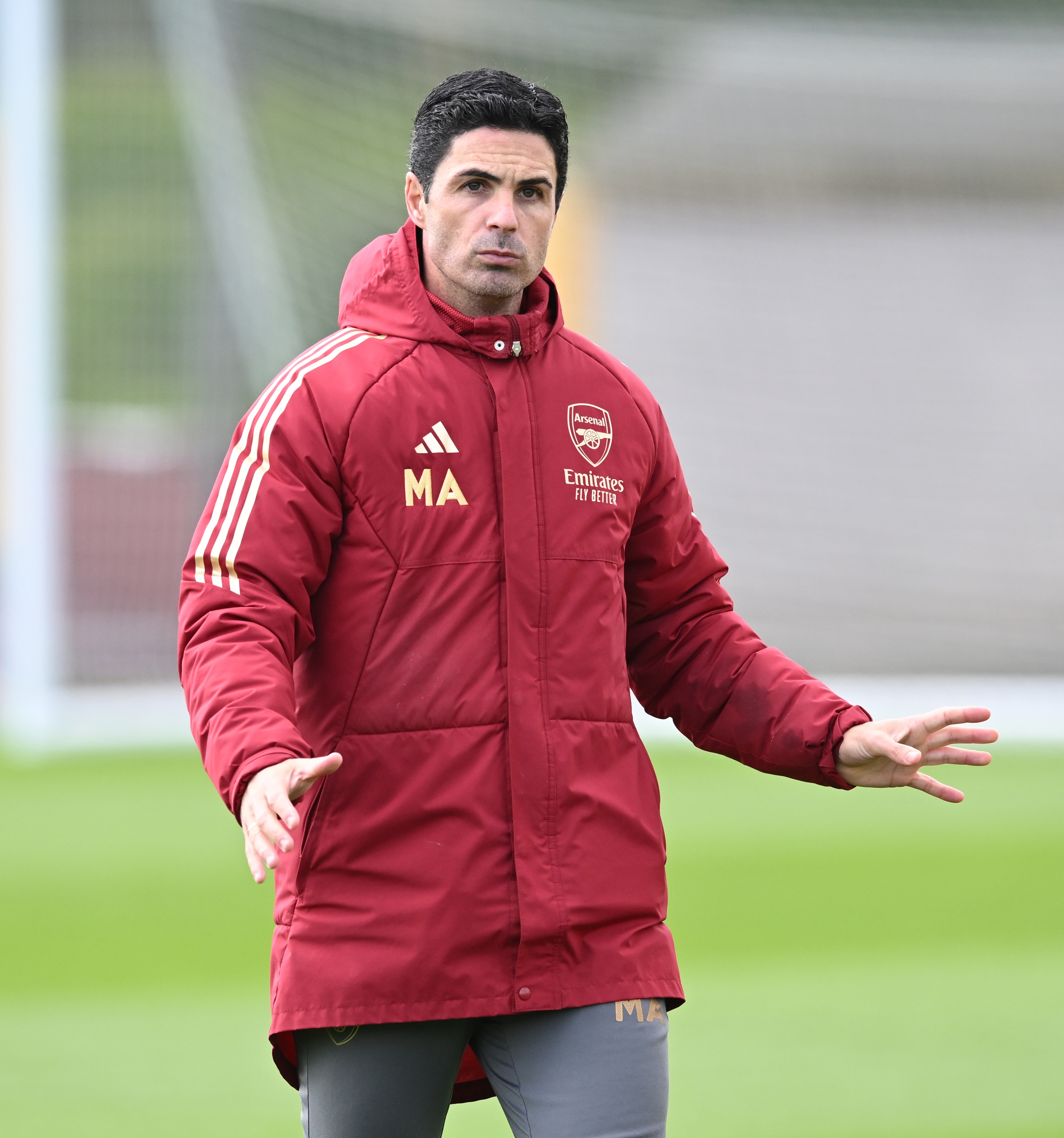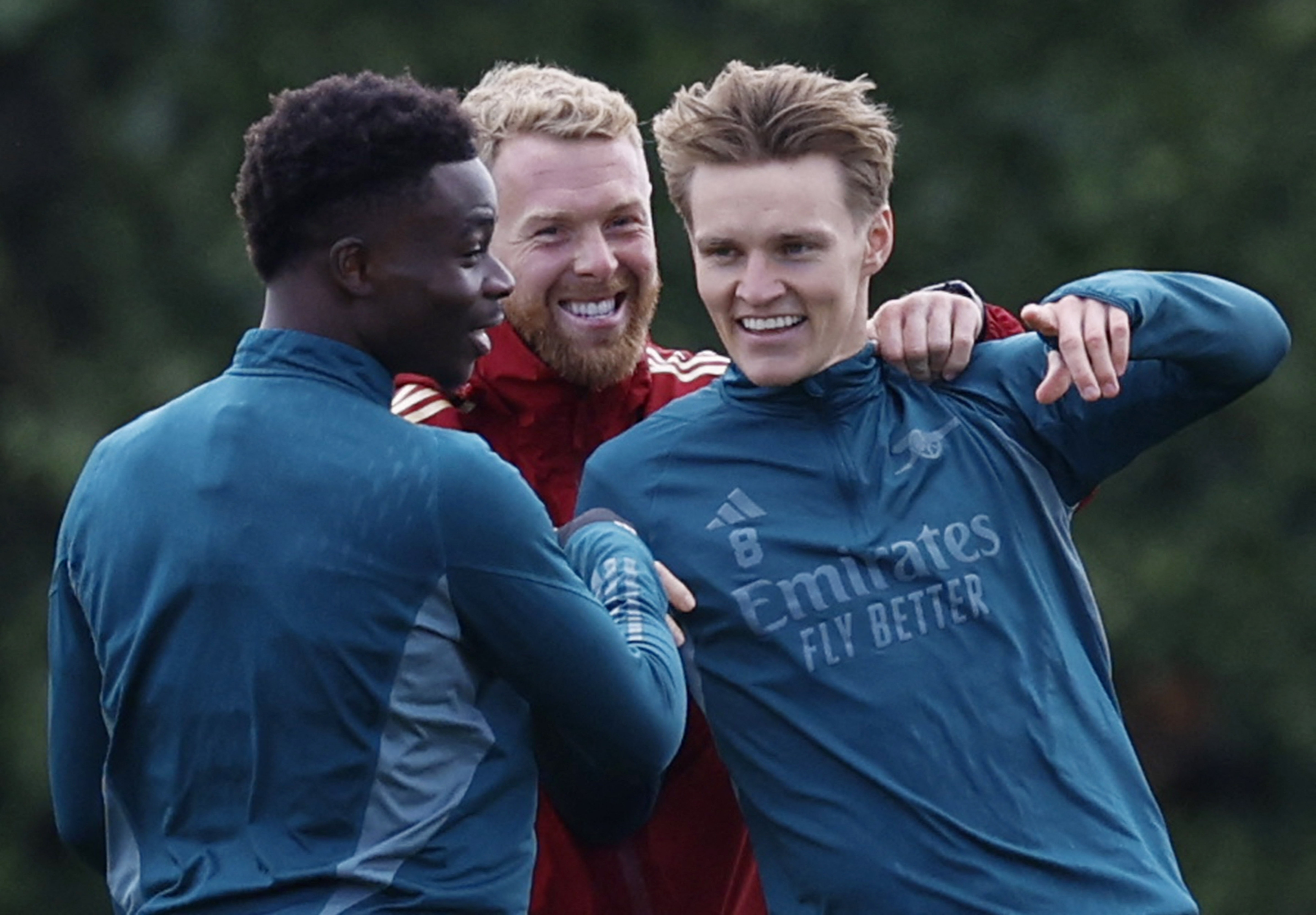Main Men in Doubt
Arsenal is facing a nerve-wracking wait as Mikel Arteta reveals that key players Bukayo Saka and Martin Odegaard may not be fit for the upcoming Champions League match against Bayern Munich.
Injury Concerns
Saka was seen limping during the last game against Aston Villa, while Odegaard had to be substituted due to feeling something in his fitness. Both players are crucial for the Gunners' creativity on the field.
Arteta's Hope
Arteta remains hopeful that the duo will recover in time for the crucial quarter-final second leg match, even though they had limited time to train and prepare after the last game.
Confidence Despite Setback
Despite a disappointing performance against Villa, Arteta is confident that the team can refocus and deliver a top-notch performance against Bayern, who are also facing challenges after losing their Bundesliga crown.

Bayern's Preparation
Bayern's manager, Thomas Tuchel, acknowledges the competition's intensity but remains confident in his team's experience and readiness to give their all in the upcoming match.
Frequently Asked Questions
What is the rule of offside in football?
The offside rules are a part of the game that is meant to stop players from getting an unfair advantage. The offside rule states that a player is in a position of being in an illegal position when any part of his head, feet, or body is closer to the goal line of the opponent than either the ball or the second to last opponent (usually the last outfielder) is at the time of receiving the ball. The fact that a player is in an “offside” position does not make it an offense. It only becomes an offense when the player actively gets involved in the play or interferes with the opponent.
What are the fundamental skills necessary to play great soccer?
A footballer must combine technical, mental, physical, and tactical skills to be a great player. Technical skills can include ball control and dribbling. They also include passing and shooting. Tactical awareness includes knowledge of the game including movement, positioning and decision-making. The performance of a player is dependent on physical attributes, such as strength, endurance, and speed. For a player to maintain performance, mental toughness is important. This includes the ability for them to stay calm and focused under pressure.
What are the most effective tactics for defending against an offensively strong team?
A disciplined, strategic approach is required to defend against an offensive team that is strong. The fundamentals of a defensive system include maintaining a compact formation, implementing a disciplined mark-up system, and establishing a solid defense line. To limit the chances for scoring, force the attackers away from the center and towards the sidelines. Effective communication amongst defenders and quick transitions to defense when possession is lost are also vital. Counter-attacking strategies can then be used to exploit any gaps that may open as the offensive team commits players forward.
What is the most effective physical conditioning for football players?
A well-rounded conditioning programme for football players should focus on different aspects of fitness. It includes endurance exercises, sprint training, power training, and flexibility training. In addition, sports-specific drills which simulate match situations are helpful in preparing the human body for the physical demands placed on it by football. A certified fitness professional can tailor a program to meet the individual’s requirements.
How can one become an expert football goalkeeper?
It takes specialized training to become an expert goalkeeper. This includes reflexes, agility and positioning. A goalkeeper must excel at shot-stopping, command of the penalty area through proficient catching and punching, and distribution with both hands and feet. Goalkeeping requires the goalkeeper to have a high level of mental resilience and decision making under pressure. They must also communicate effectively with their defense. For goalkeepers, consistent practice, constructive criticism from coaches, and an analysis of performances for improvement are all essential.
Statistics
- Goalkeepers who engage in specialized reaction-time training reduce their goals-conceded tally by an average of 25% over a season.
- Coaches who engage in continuous professional development contribute to a 40% better win ratio for their teams.
- Players with a balanced diet containing adequate macronutrients have a 30% lower injury rate than those with less balanced nutritional habits.
- Teams that prioritize teamwork in training sessions increase their passing accuracy by an average of 15% in competitive matches.
- Defensive units that practice coordinated drills together at least twice a week concede 18% fewer goals in match play.
External Links
fai.ie
nscaa.com
ussoccer.com
ffacoach.com
fifa.com
How To
How to improve your football tactical intelligence
Start by studying the formations and tactics used by top teams to improve your tactical knowledge. Watch professional matches and pay attention to player positioning, timing of runs, and transitional plays. Regularly participate in small-sided match simulations to improve your ability to make decisions. Work with a coach to discuss your game and adaptability. Reading books on football tactics and regularly attending tactical workshops can also broaden your knowledge base and improve your in-game acumen.

